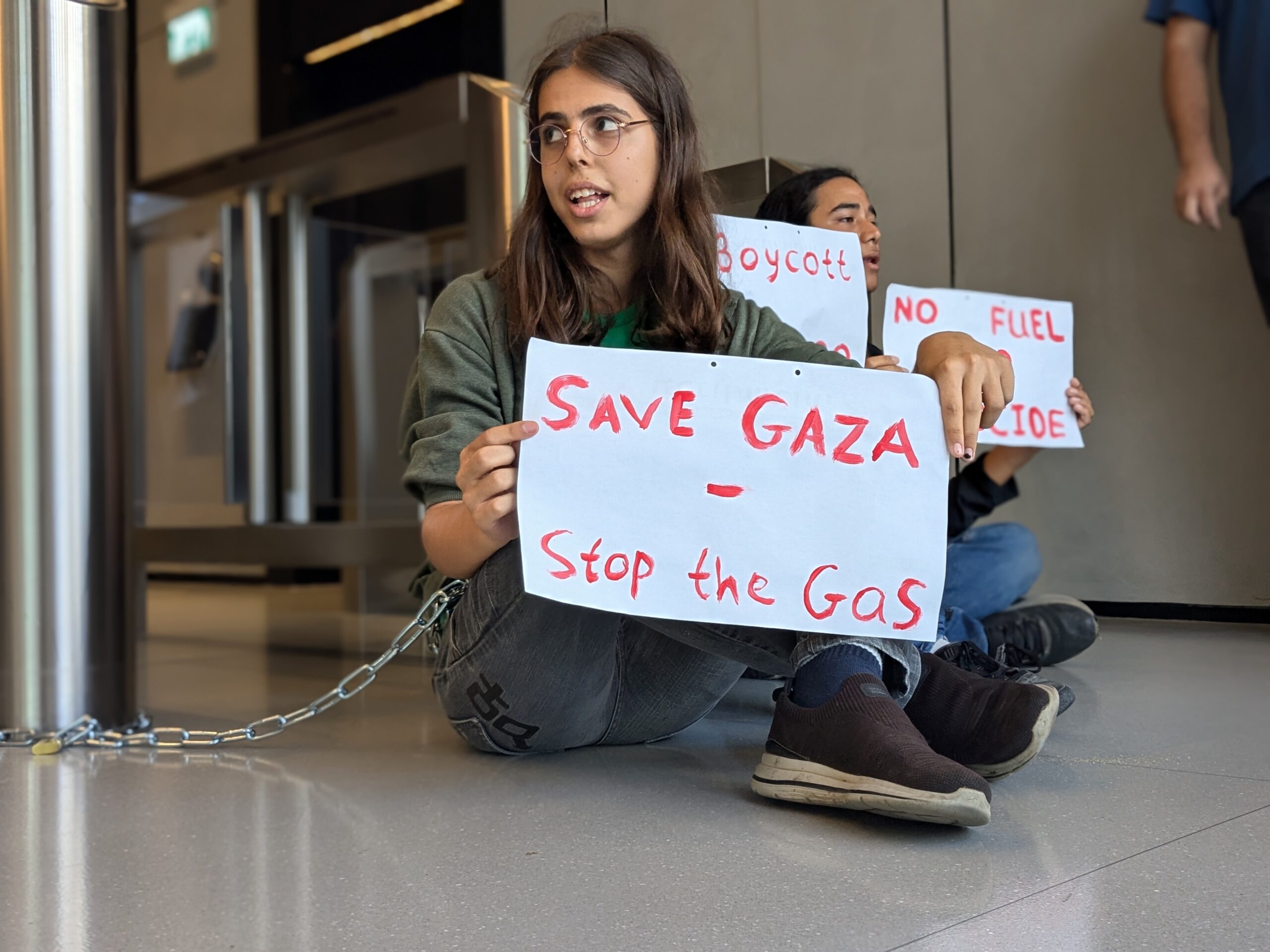- cross-posted to:
- [email protected]
- cross-posted to:
- [email protected]
New research is helping anti-genocide activists identify and target the corporations enabling and profiting from the war in Gaza.
In late September, half a dozen activists with the group Voices Against War chained themselves to turnstiles inside the lobby of Chevron’s offices in Herzliya, Israel, just north of Tel Aviv.
International oil and gas companies supply 35 percent of Israel’s crude oil. Among those companies are not only U.S. ones — such as Chevron, which supplies 8 percent of Israel’s crude oil — but others with consumer-facing businesses in the United States, including BP (also 8 percent), ExxonMobil (6 percent) and Shell (5 percent). Chevron, Shell and Exxon all hold stakes in the Caspian Pipeline, which delivers oil from Kazakhstan to Israel via Russia, the Black Sea and the Mediterranean. And BP holds a stake in the Baku-Tbilisi-Ceyhan Pipeline, which delivers oil from Azerbaijan to Israel via Georgia, Turkey and the Mediterranean.
The understanding of such supply chains can aid activists in disrupting them, according to Rowell.
In June, South by Southwest announced that it would be severing partnerships with both the U.S. Army and the weapons manufacturer RTX (better known as Raytheon) after more than 80 performers withdrew from the annual festival in protest, explicitly citing the Israeli genocide in Gaza. Similarly, Human Rights Campaign quietly removed weapons manufacturer Northrop Grumman from its list of corporate partners following a protest against the gay rights advocacy organization’s “pinkwashing of the war machine” in February.



I thought it was taking about Boeing Defense, Space and security, which also wouldn’t really make sense.
I thought it was Balchelor of Dental Surgery and got really confused.